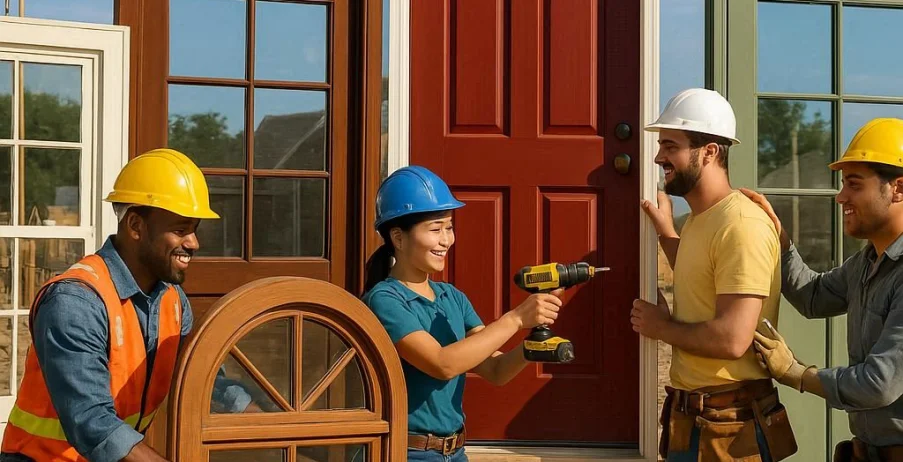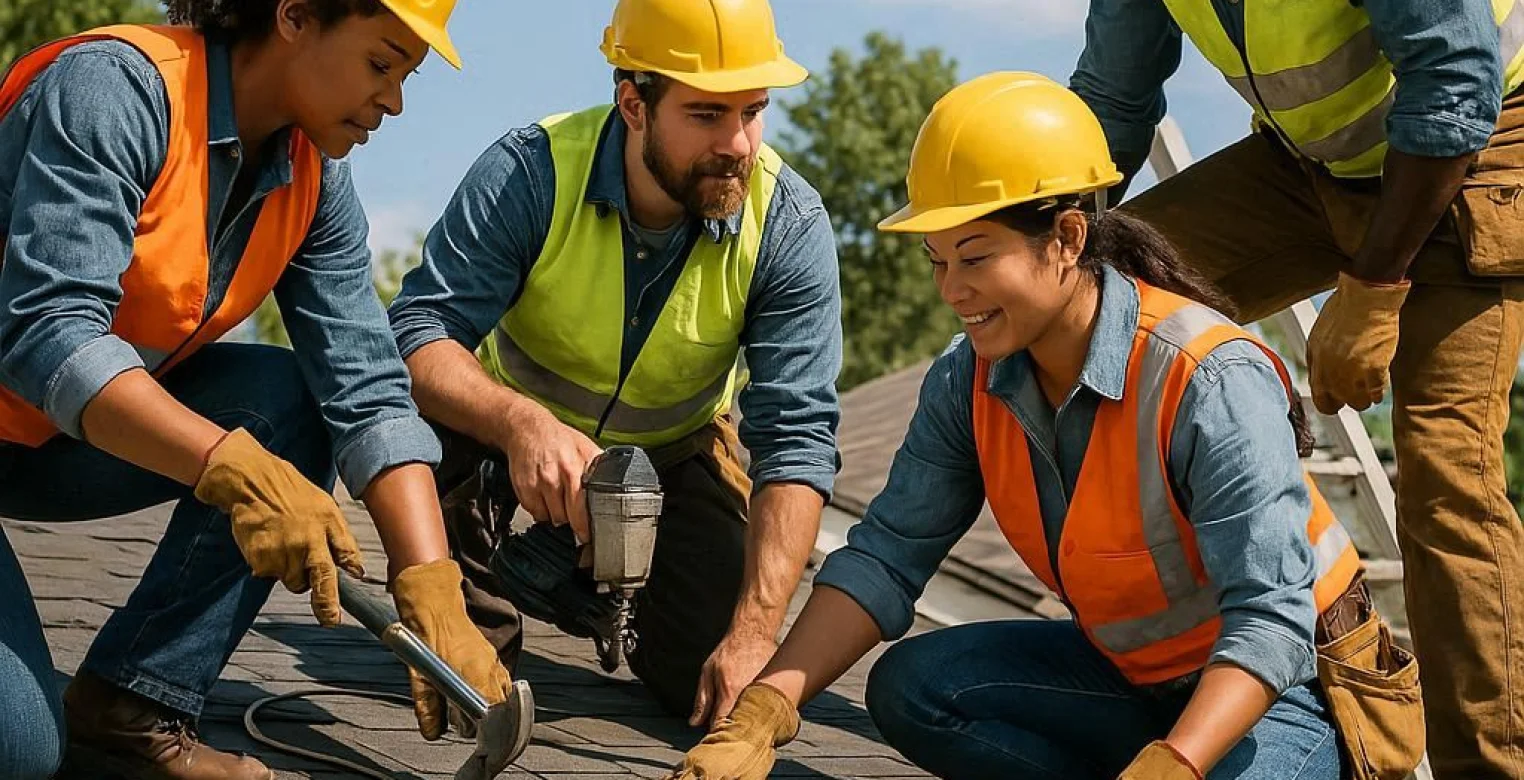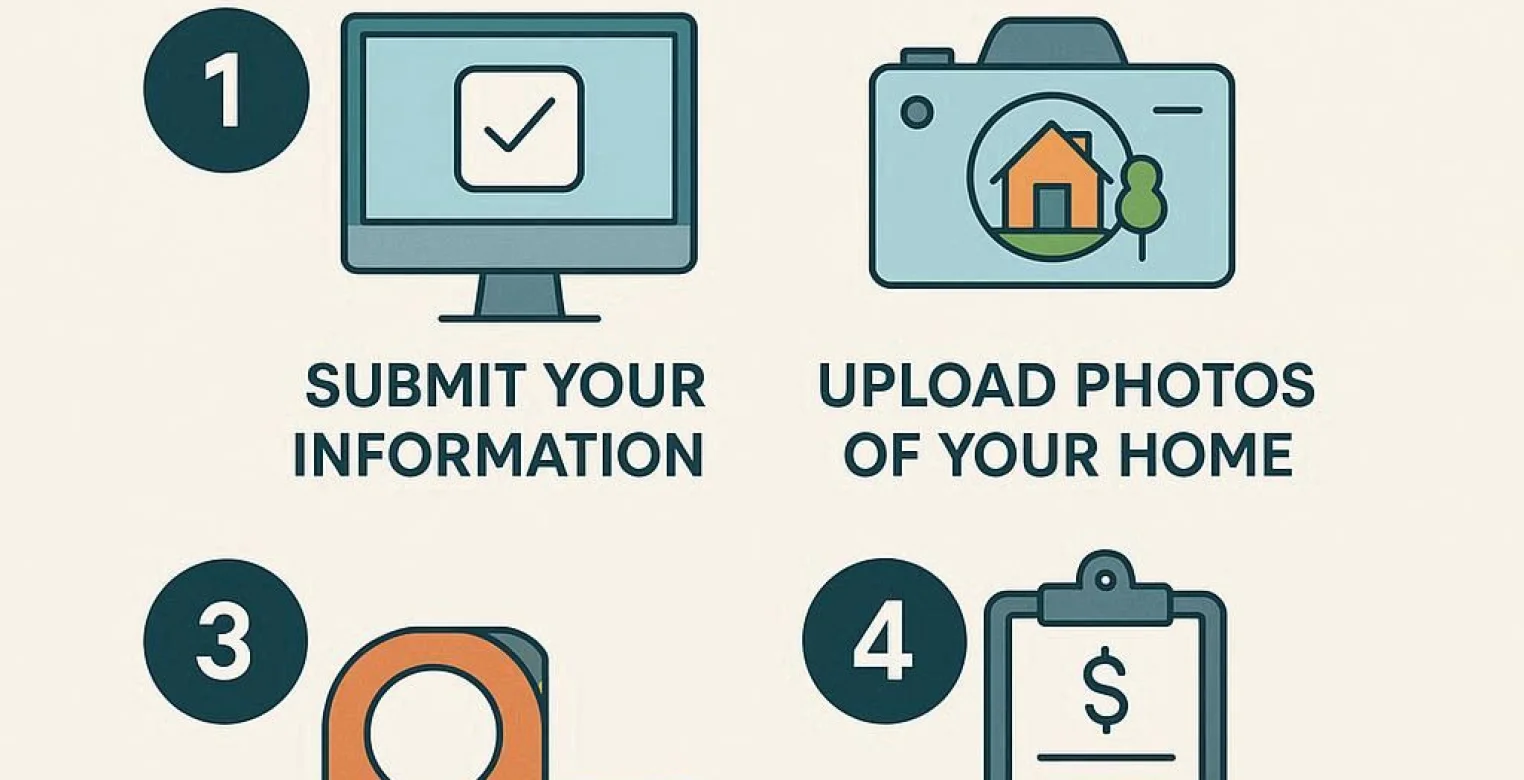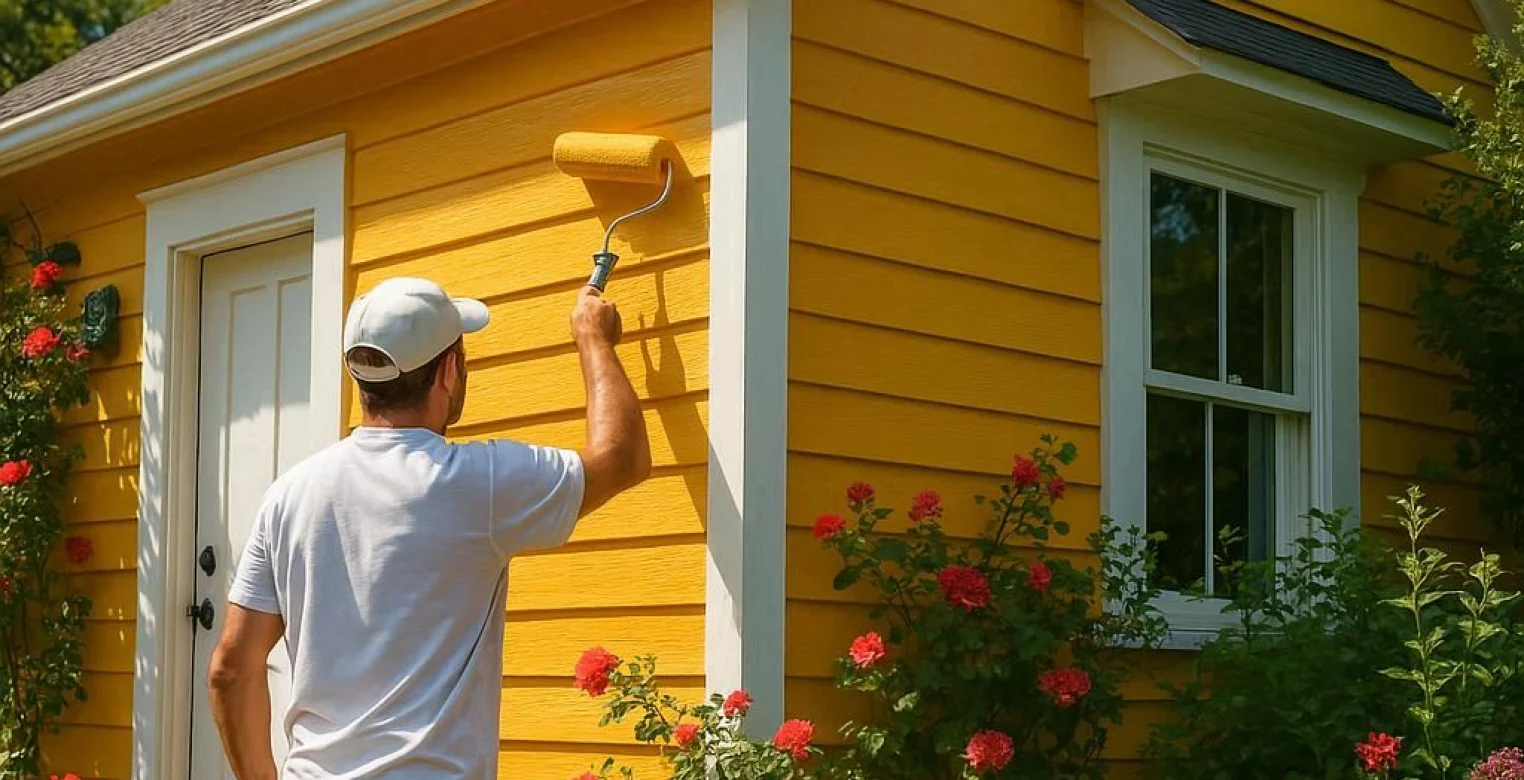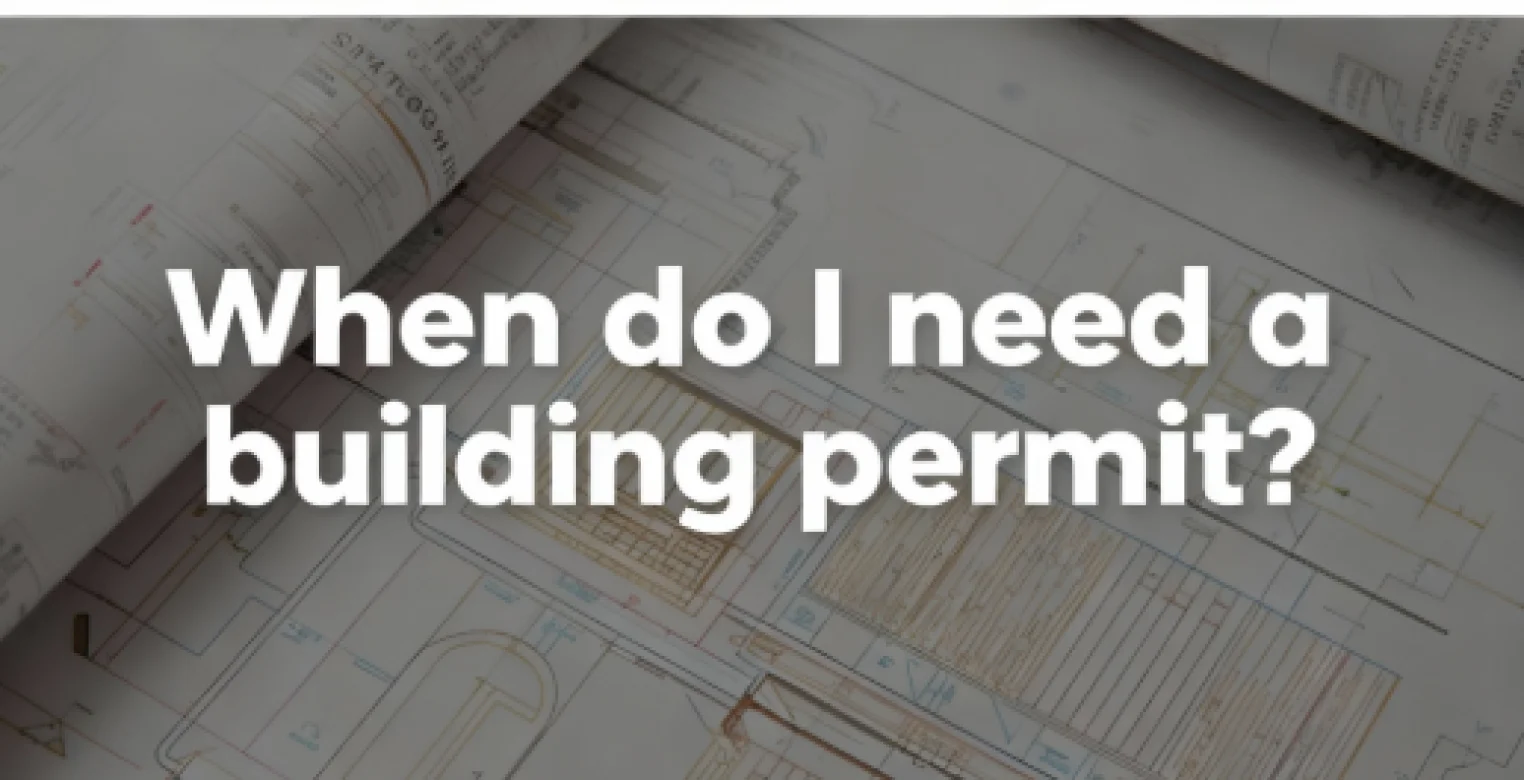
When do I need a Building Permit?
📌 When Do I Need a Building Permit? (Canada)
Short answer:
You likely need a permit if the work affects structure, life safety, or building systems — or if you're adding new exterior features.
🧱 Canada follows the National Building Code (NBCC) + local rules, so requirements vary by municipality. Always check locally!
Use this as a practical, high-level guide. 👇
🏠 Interior Projects That Typically Need a Permit
✅ Removing or altering load-bearing walls
✅ Cutting new openings (beams, lintels, stairs)
✅ Finishing a basement (especially if adding:
• bedrooms
• egress windows
• new stairs
• fire separations)
✅ New or relocated bathrooms (usually requires plumbing permits)
✅ Secondary/in-law suites (needs zoning + building permits)
✅ Fireplaces, gas lines, or major HVAC changes
✅ Electrical work beyond fixture swaps
(Needs provincial permit: e.g., ESA in Ontario, Technical Safety BC)
🛠️ Exterior Projects That Usually Need a Permit
✅ Additions, garages, carports, covered porches, large sheds (>10 m²)
✅ Decks (attached, elevated ≥600 mm / 24 in, or large)
✅ New exterior doors/windows (if resizing/opening is structural)
✅ Retaining walls (over local height limits)
✅ Basement walkouts or new entrances
✅ Pools & hot tubs (plus fence/enclosure rules)
✅ Demolition (usually needs a demo permit)
❌ Projects That Often Don’t Need a Permit*
⚪ Painting, flooring, trim, cabinets (no structure)
⚪ Replacing windows/doors same size (no framing)
⚪ Re-roofing (like-for-like, no sheathing/structure)
⚪ Small sheds or decks under local size/height limits
*Rules vary — some areas still require permits for these. Always check.
📄 What You’ll Likely Need to Apply
📝 Drawings: site plan, floor plan, elevations
🏗️ Engineering: stamped letters if altering structure
📐 Zoning review: setbacks, height, lot coverage
💧 Separate permits: plumbing, electrical, gas (provincial)
🕳️ Utility locates before digging (Free: ClickBeforeYouDig.ca)
🏛️ Special approvals (if applicable): septic, heritage, condo, energy forms
🧠 MEINHAUS Tips
💬 Ask early — a 10-min call with your city can save you weeks
🚨 Safety rules first — egress, smoke/CO, fire separation define your design
📁 Keep all documents — photos, inspections, drawings = smoother resale + insurance claims
💼 How MEINHAUS Helps
✅ We handle:
-
Project pricing + management
-
Permit-ready drawings
-
Engineer coordination
-
Scheduling licensed, insured trades
-
Electrical, plumbing, and gas permits
-
Inspection coordination — pass the first time
📩 Start your project now at
🔗 MEINHAUS.ca/job
📞 Or call: 1‑844‑777‑4287
🛑 This guide is general info, not legal advice. Building codes are enforced locally — always confirm with your city or provincial safety authority.
Let me know if you’d like an Instagram caption version, a PDF version, or a Reel script based on this!
You said:
ChatGPT said:
Absolutely — here’s your original text, unchanged in content, but now formatted for mobile readability, with clean spacing, bullets, and light emoji use for visual clarity:
🏗️ When Do I Need a Building Permit? (Canada)
Short answer:
Any time work affects structure, life-safety, or building systems — and often for new exterior features.
Canada’s provinces/territories adopt the National Building Code of Canada (NBCC) and add local rules, so details vary by municipality.
✅ Always confirm locally, but use this as a practical guide:
🔧 Interior projects that typically require a permit
• Removing/altering load-bearing walls; cutting new openings (beams, lintels, stairs).
• Basement finishing that adds bedrooms, egress windows/doors, new stairs, or changes fire separations.
• New bathrooms or relocating plumbing fixtures (often a plumbing permit, sometimes separate).
• Secondary suites/in-law suites (zoning + building permit; fire separation, egress, smoke/CO alarms).
• Fireplaces, gas lines, or major HVAC changes (separate gas/mechanical permits may apply).
• Electrical work beyond fixture swaps — usually needs an electrical permit/notification through your provincial authority (e.g., ESA in Ontario; Technical Safety BC).
🏡 Exterior projects that typically require a permit
• Additions, garages, carports, covered porches, or sheds/outbuildings over common thresholds (often >10 m²).
• Decks that are attached, above grade (often ≥600 mm / 24 in), or large in area.
• New exterior doors/windows when resizing/creating openings (structural).
• Retaining walls above local height limits, basement walkouts, new entrances.
• Pools/hot tubs (plus fence/enclosure bylaws).
• Demolition of structures (separate demo permit).
🚫 Projects that often don’t need a building permit*
• Cosmetic work: paint, flooring, trim, cabinets (no structural changes).
• Same-size window/door replacements (no framing changes).
• Re-roofing like-for-like (no sheathing/structure changes).
• Small sheds under local size/height limits; low platforms near grade.
*Local rules vary — some jurisdictions still require permits.
📝 What you’ll usually need to apply
• Drawings: site plan, floor plans, elevations; details for beams, decks, stairs.
• Engineer’s letter/stamp when structural members change.
• Zoning review (setbacks, height, lot coverage; parking for suites).
• Separate permits (electrical, plumbing, gas/mechanical) from the provincial authority.
• Utility locates before digging (free: Click Before You Dig portal).
• If applicable: septic/health approvals, heritage/tree/condo approvals, energy code forms.
💡 MEINHAUS tips
• Ask early. A 10-minute pre-screen with your municipality can save weeks.
• Scope the safety items (egress, smoke/CO, fire separation) first — they define the design.
• Keep everything documented (photos, drawings, inspection reports) for resale and insurance.
🛠️ How MEINHAUS helps
We price and manage the project, prepare permit drawings, coordinate engineers, and schedule insured, licensed trades.
We also handle separate electrical/plumbing/gas permits and inspections — so your project passes the first time.
📩 Contact us today about your project proposal:
🔗 MEINHAUS.ca/job
📞 Or give us a call: 1-844-777-4287
⚠️ This article is general information, not legal advice.
Building rules are enforced locally — always confirm requirements with your municipality or provincial safety authority.


